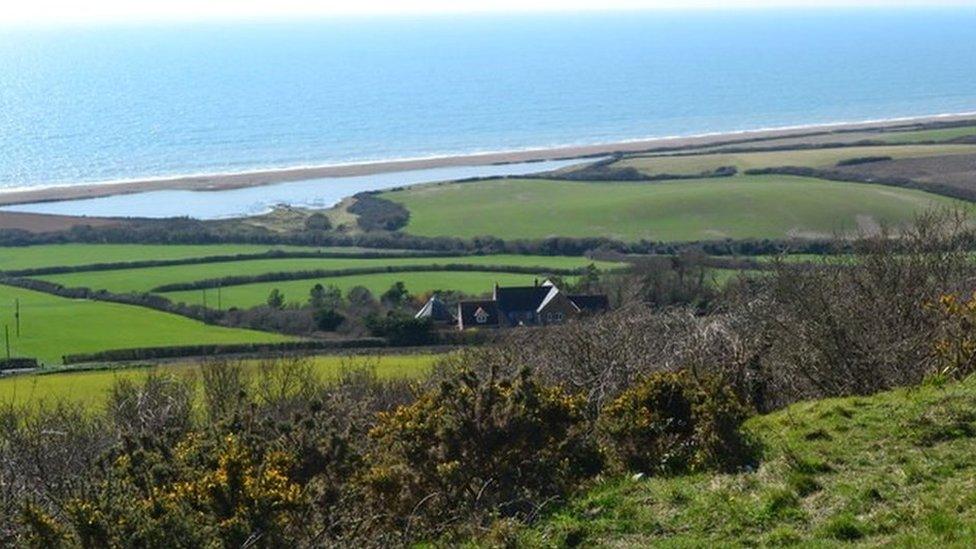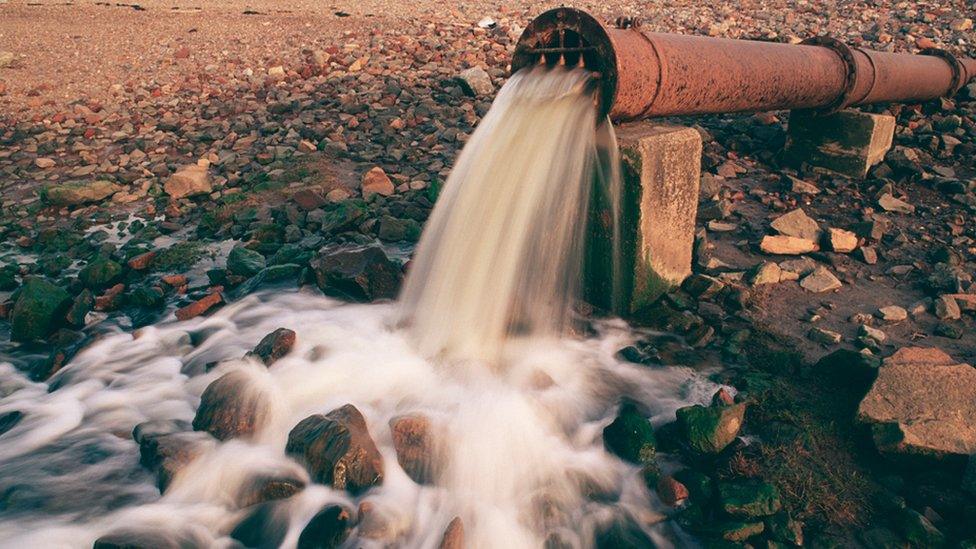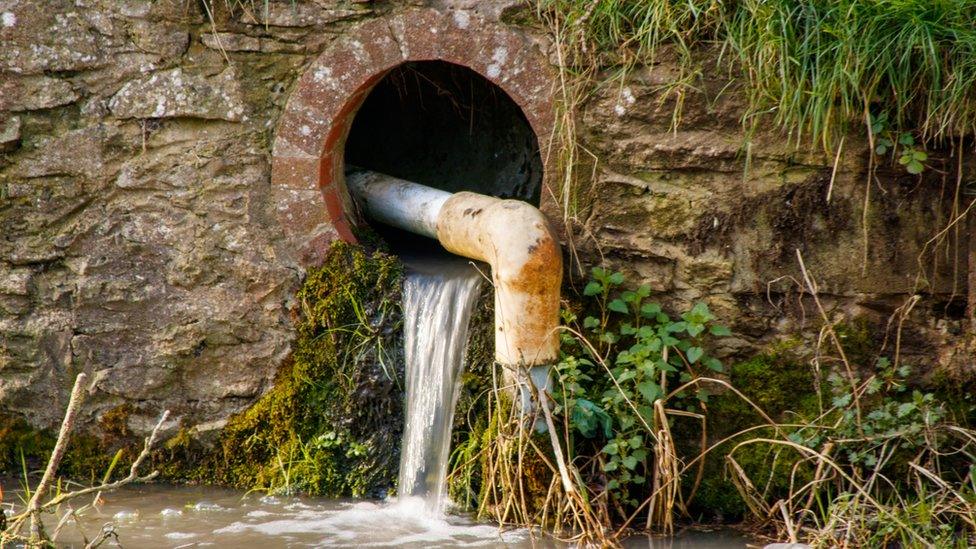West Bexington sewer scheme aims to reduce storm water discharges
- Published

The work is aimed at dealing with sudden rises in storm water on the Dorset coast
A new sewage system aimed at cutting discharges of untreated storm water on Dorset's Jurassic Coast has been completed.
Dozens of beaches in England and Wales have been affected by discharges of untreated sewage after heavy rain.
Wessex Water said the £800,000 project would increase sewer capacity and help deal with sudden rises in water volume.
A mile-long replacement rising main sewer has been installed between West Bexington and Swyre near Chesil Beach.
Improvement work has also been carried out to upgrade pumps and further renovation of sewers has been carried out within the Beach Road and Swyre Road area.
It is aimed at reducing the number of times a nearby storm overflow operates automatically on the UNESCO World Heritage Site coastline.
Water companies across England released raw sewage into rivers and seas for more than 1.75 million hours last year.
Although not illegal, academics and environmental groups say releasing sewage poses a danger to human health.
Companies release sewage when there is too much demand on their treatment works during rainy periods.
Paul Delves of Wessex Water said the work, which took a year to complete, would ensure that the number of times the overflow operates automatically is halved.
"This is a popular area, with Chesil Beach, the South West Coast Path, that is used by lots of walkers, and a coastal reed bed close by.
"Completing out this project will mean it continues to be protected in future years," he added.
The completion of the West Bexington scheme follows Wessex Water's £500,000 investment to protect the coastline around Portland Bill Lighthouse from untreated wastewater.

Follow BBC South on Facebook, external, Twitter, external, or Instagram, external. Send your story ideas to south.newsonline@bbc.co.uk, external.
Related topics
- Published17 August 2022

- Published31 March 2023
